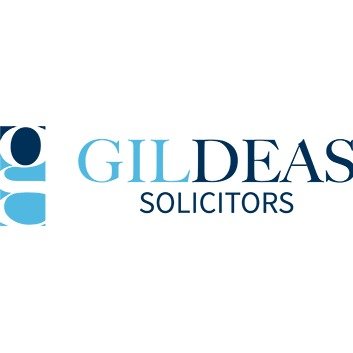Best Medical Malpractice Lawyers in Edinburgh
Share your needs with us, get contacted by law firms.
Free. Takes 2 min.
List of the best lawyers in Edinburgh, United Kingdom
About Medical Malpractice Law in Edinburgh, United Kingdom
Medical malpractice, also known as clinical negligence, refers to a situation where a medical professional's conduct falls below the acceptable standard of care and results in a patient's injury or harm. In Edinburgh, and the United Kingdom as a whole, the law pertaining to medical malpractice is detailed and complex, it is governed by various legal acts and guidelines, such as the Civil Liability Act, the 1987 Human Rights Act, and the National Health Service (NHS) guidelines. The onus of proof lies with the claimant, who needs to demonstrate that the medic's actions were negligent and directly led to the patient’s injury or harm.
Why You May Need a Lawyer
Medical malpractice cases can be quite challenging due to several legal and medical technicalities involved. A lawyer who specialises in medical malpractice can guide you through the intricate process of establishing liability, proving negligence, and assessing the extent of harm or damage. This is particularly vital in cases where the malpractice has resulted in major injury, long-term health issues, or even death. If the medical professional or institution is contesting your claim, you will also need a lawyer to effectively represent your case in court.
Local Laws Overview
In Edinburgh, to prove a medical malpractice case, you have three years from the date of the incident or the date when you first realised harm had occurred due to negligence. However, there are specific rules surrounding minors, persons with mental impairments, or when a patient dies as a result of malpractice. Furthermore, according to NHS guidelines, any claims against the NHS need to be presented in a particular manner - and failure to do so may result in your claim being dismissed. The laws regarding compensation are multifaceted, taking into account factors like loss of earnings, future care costs, and psychological impacts.
Frequently Asked Questions
What constitutes medical malpractice?
Medical malpractice includes situations where a healthcare professional or provider fails to provide appropriate treatment, omits to take appropriate action, or provides substandard treatment that causes harm, injury, or death to a patient.
What kind of evidence is needed to prove malpractice?
Medical records, expert testimonies, and in certain circumstances, witness statements are crucial pieces of evidence. These help establish that the standard of care was breached and that the breach resulted in harm to the patient.
Are there any caps on the amount of compensation I can receive?
Unlike other countries, the UK doesn't impose a cap on compensations for medical malpractice. Each case is evaluated individually, and the compensation is calculated based on the harm and losses suffered by the patient.
Can I still claim if the medical professional apologised?
Yes, an apology from a medical professional does not amount to an admission of liability under UK law and the claim can still be made.
What is the time limit for filing a claim?
In most cases, you have 3 years from the date of the incident, or from when you became aware of the negligence, to make a claim. However, exceptions apply for minors and persons with mental impairments.
Additional Resources
The Scottish Legal Complaints Commission (SLCC), the Health and Safety Executive (HSE) and the NHS Scotland are some of the key resources that offer information and support regarding medical malpractice. Non-profit organisations such as AvMA (Action Against Medical Accidents) also provide free advice and support to people affected by medical negligence.
Next Steps
If you believe you or a loved one is a victim of medical malpractice, it is important to get legal advice as soon as possible due to the time limit on claims. Document every aspect of your case, including medical records, symptoms, worsening conditions, and any communication with medical professionals. Contact a medical malpractice lawyer to understand your potential legal options and the best course of action.
Lawzana helps you find the best lawyers and law firms in Edinburgh through a curated and pre-screened list of qualified legal professionals. Our platform offers rankings and detailed profiles of attorneys and law firms, allowing you to compare based on practice areas, including Medical Malpractice, experience, and client feedback.
Each profile includes a description of the firm's areas of practice, client reviews, team members and partners, year of establishment, spoken languages, office locations, contact information, social media presence, and any published articles or resources. Most firms on our platform speak English and are experienced in both local and international legal matters.
Get a quote from top-rated law firms in Edinburgh, United Kingdom — quickly, securely, and without unnecessary hassle.
Disclaimer:
The information provided on this page is for general informational purposes only and does not constitute legal advice. While we strive to ensure the accuracy and relevance of the content, legal information may change over time, and interpretations of the law can vary. You should always consult with a qualified legal professional for advice specific to your situation.
We disclaim all liability for actions taken or not taken based on the content of this page. If you believe any information is incorrect or outdated, please contact us, and we will review and update it where appropriate.









